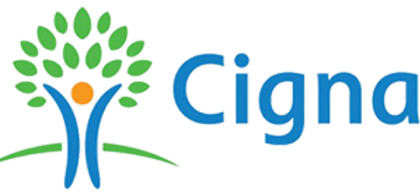What Kind of Food Can You Eat with Braces?

An estimated 53% of Americans have malocclusion, a misalignment of teeth. Misalignment is caused by many factors, including extra teeth, abnormally shaped teeth, injuries, or poorly fitted dental fillings and crowns. However, most cases of malocclusion are hereditary. While several treatment options are available, braces continue to be the gold standard for treating malocclusion and helping patients develop healthy smiles. There are over 4 million people in the US who wear braces. Braces aren’t just for children either, and 25% of these individuals are adults. Braces are a long-term treatment plan, with the average patient wearing braces for around two years. However, the amount of time you’ll wear braces will depend on the cause and severity of your malocclusion. While braces are incredibly beneficial, you’ll need to take care of them and your teeth, including adhering to the foods you can and can’t eat while wearing them. Many people are concerned about what kind of food they can eat with braces. Urban Orthodontics is here to provide stellar results on your journey to a healthier smile and answer your questions along the way.
What Foods Can I Eat with Braces?
While the material and color of braces have changed over time, the foods you can and cannot eat haven’t changed. Making these changes to your diet is important to protect your braces. Eating the wrong foods can bend or break wires, and possibly loosen the bracket from the teeth. If you need braces, our orthodontist will provide you with a complete list of foods to avoid during your first visit. However, we have a cheat sheet you can go by throughout your treatment. When wearing braces, feel free to eat foods like: Dairy Products- Soft cheeses and dips
- Yogurt and Greek yogurt
- Pudding
- Milk-based smoothies
- Cottage cheese
- Ice cream
- Milkshakes
- Pizza without the crust
- Pancakes
- Waffles
- Soft pretzels
- Muffins
- Cupcakes
- Soft tortillas
- Soft bread-based sandwiches
- Pastas
- Mac & cheese
- Oatmeal
- Oats
- Rice
- Cold and hot cereals that don’t contain nuts
- Tender cuts of meat
- Seafood
- Sausage
- Fried chicken
- Ground beef
- Ground chicken
- Ground turkey
- Lunch meats
- Hot dogs
- Meatballs
- Eggs
- Mashed potatoes
- Sweet potatoes
- Soft and cooked vegetables
- Beans
- Salads
- Bananas
- Apples cut into small slices
- Applesauce
- Pears cut into small slices
- Fruit-based smoothies
- Blueberries
- Strawberries
- Blackberries
- Raspberries
- Oranges
- Grapefruit
- Grapes
- Soft, moist cakes that don’t contain nuts
- Soft cookies
- Soft brownies
- Pies
- Donuts without nuts
- Peanut butter cups
- Plain chocolate
- Juice
- Tea
- Horchata
- Hot chocolate
- Coffee
- Lemonade
- Milk
- Always eat softer foods
- Cut your food into smaller bites
- Avoid opening your mouth too wide
- Avoid biting down too hard
- Cut the crust off of the pizza before eating it
- Avoid chewy bagels
- Never eat meat off the bone
- Chew your food slowly
What Can You Eat in the First Week of Braces?
Your mouth may be sore or sensitive after you first get braces, and you’ll need to learn how to chew differently. As a result, it’s common for patients to ask what they can eat in the first week of braces. We recommend choosing soft, easy-to-chew foods during the first week following your appointment. Some of the best foods to eat include: Things to Eat With Braces:- Mashed potatoes
- Oatmeal
- Rice
- Pasta
- Cooked vegetables
- Soft cheeses
- Mac & Cheese
- Fruit Cups
- Smoothies
- Seafood
- Moist desserts
- Scrambled eggs
- Soup
- Yogurt
What Foods Can’t I Eat with Braces Initially?
You should only eat foods that are more comfortable to chew during the first week of having braces. If your mouth sensitivity persists beyond that point, we recommend that you continue to eat the softer approved foods until you feel more comfortable chewing. Foods to Avoid With Braces- Pizza
- Sandwiches
- Waffles and pancakes
- Muffins
- Cereals
- Most meats
- Apples
- Pears
- Desserts that you have to chew more, like brownies, cookies, and donuts
Foods to Continue Avoiding While You Have Braces
While there are plenty of delicious foods you can eat while wearing braces, there are also many foods that you’ll need to avoid. Questions like “Can you eat chips with braces?” are common. Unfortunately, chips and other crunchy foods are out of the question. So, it’s more about what you can’t eat than what you can eat with braces. But it’s not just crunchy foods that can damage your braces. You’ll also need to avoid hard, chewy, or gooey foods. Not only will these foods damage your braces, but dental appliances can be broken off or dislodged, which can become choking hazards. If this happens it will extend the time you have to wear braces. You may be wondering what foods you can’t eat with braces. You can use this extensive list as a cheat sheet going forward.- Caramel apples
- Caramels
- Cashews
- Celery
- Cheese puffs
- Cheez-Its
- Chewing gum
- Chips
- Corn on the cob
- Crackers
- Crunchy bread
- Goldfish
- Graham crackers
- Granola
- Gummy fruit snacks and gummy worms
- Hard candy
- Hard-shell tacos
- Ice
- Jerky
- Nuts
- Pizza crust
- Popcorn
- Pretzels
- Rice cakes
- Saltine crackers
- Sticky foods and candy, like Starbursts, taffy, Tootsie Rolls, or licorice
- Thick bagels
- Thin crust pizza
- Toast
- Whole apples
- Snacks to eat with braces
- Chewing on bottle caps
- Pen or pencil-chewing
- Nail-biting
- Use of toothpicks
- Straw chewing
- Teeth grinding










